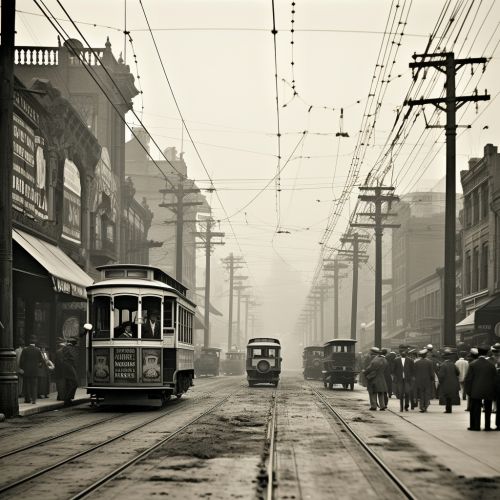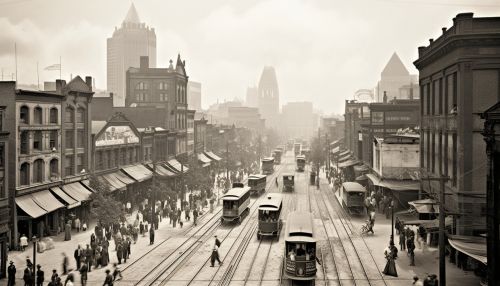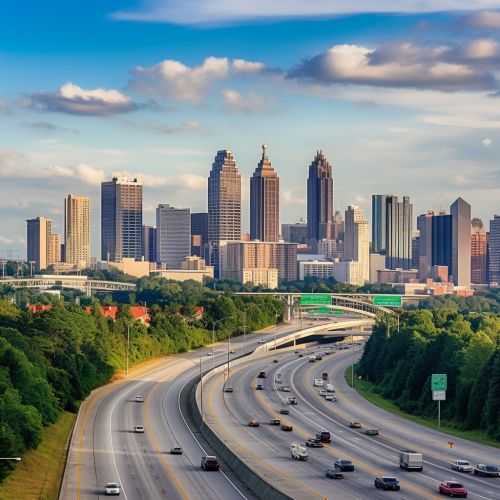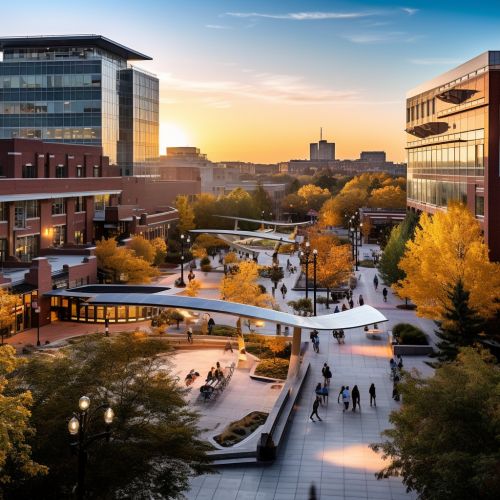Atlanta
History
Atlanta's history dates back to 1836 when the area was designated as the terminus of the Western & Atlantic Railroad. The city was initially named "Terminus" and later renamed "Marthasville" in honor of the then-governor's daughter. In 1847, the city was finally renamed "Atlanta," a feminized version of "Atlantic," signifying the city's growing importance as a railroad hub.


The city's growth was largely driven by its strategic location as a transportation hub. The railroad made Atlanta a logistics hub, connecting it to various parts of the country. During the American Civil War, Atlanta became a critical supply center for the Confederate Army, leading to its eventual destruction during General William T. Sherman's infamous "March to the Sea."
Atlanta was rebuilt after the Civil War and continued to grow throughout the 20th century, becoming a significant economic and cultural center in the Southern United States. The city played a pivotal role in the Civil Rights Movement of the 1960s, with Dr. Martin Luther King Jr. and many other leaders based in the city.
Geography and Climate
Atlanta is located in the southeastern part of the United States, in the northern part of the state of Georgia. The city's topography is a mix of rolling hills and dense tree coverage, earning it the nickname "the city in a forest." The Chattahoochee River, one of the major rivers in the Southeast, flows through the northwestern part of the city.


The city has a humid subtropical climate, with hot, humid summers and mild, but occasionally cold winters. Precipitation is relatively evenly distributed throughout the year, with late spring and early fall being the wettest periods. Snowfall is rare but can occur in winter.
Economy
Atlanta's economy is diverse, with dominant sectors including logistics, professional and business services, media operations, and information technology. Atlanta has a significant impact on the global economy, and it is considered a "world city." The city is home to the headquarters of many multinational corporations, including The Coca-Cola Company, The Home Depot, and Delta Air Lines.


Atlanta's economy is also heavily influenced by its transportation infrastructure. Hartsfield-Jackson Atlanta International Airport is one of the world's busiest airports, and the city's rail and highway systems contribute significantly to regional commerce.
Culture
Atlanta is a major center for arts and culture. The city is home to significant art museums, a vibrant music scene, and a variety of theater and dance companies. Atlanta has also played a significant role in the development of various genres of American music, including country, gospel, rap, and R&B.


The city is also known for its cuisine, which includes a wide variety of southern dishes. Atlanta hosts several annual food and wine festivals, showcasing the city's culinary diversity.
Education
Atlanta is home to many colleges and universities, including the Georgia Institute of Technology, Emory University, and Georgia State University. The city's educational institutions are known for their research programs and contributions to various fields, including medicine, business, engineering, and the social sciences.


Sports
Atlanta is a major center for professional sports. The city is home to several professional sports teams, including the Atlanta Braves (MLB), Atlanta Hawks (NBA), Atlanta Falcons (NFL), and Atlanta United FC (MLS).


